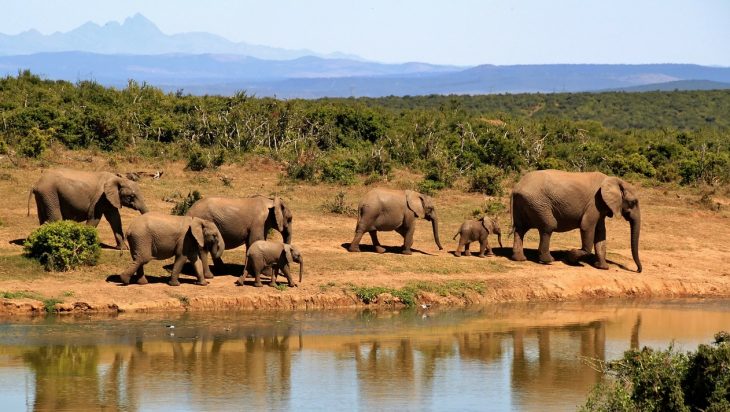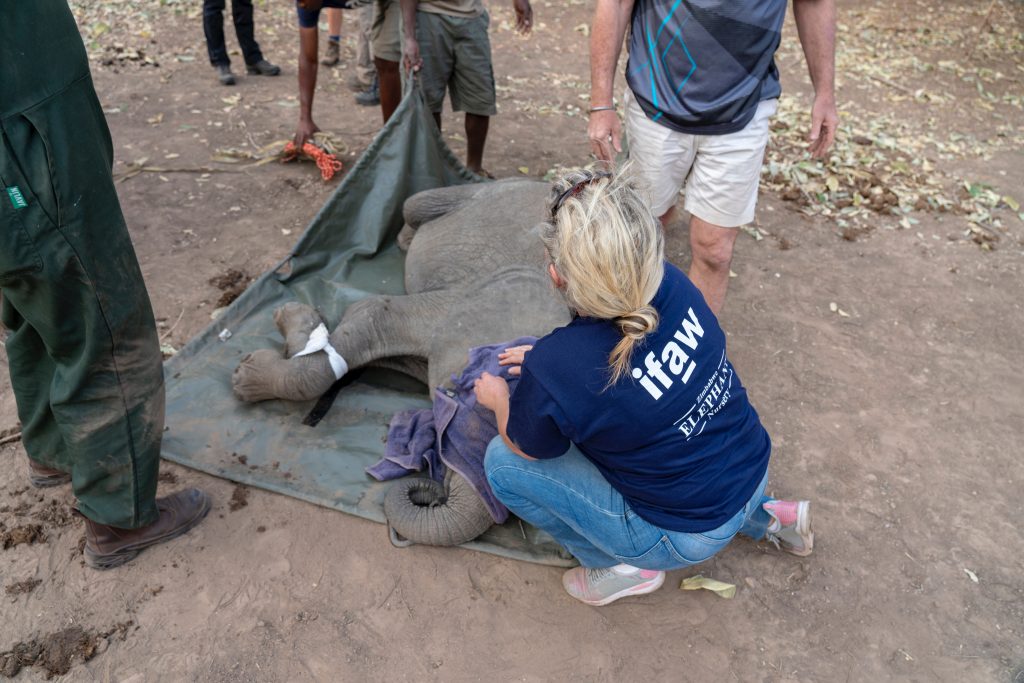
Be the first to get latest stories.
Follow Cemerlang's Telegram channel.
by Naylee Izzati bt. Zamri
Billions of years ago, God created an impeccable world where only elephants wore ivory. He also created for them a leader, mankind. Take a guess what happens next.
In 1930, there were 10 million elephants teeming across the African plains. Today there are only 415,000 left. The population of these hapless creatures have plummeted to less than half a million over the past 90 years. At this rate, it’s possible that in a few years, there will be no more elephants roaming the Earth. It’s devastating that the reason for the decline is due to poaching as about 27,000 elephants are slaughtered each year in Africa, according to National Geographic’s wildlife survey, the Great Elephant Census. This is of course to supply an endless demand for ivory. Many do not know that a third of an elephant’s tusk are in its skull which contains a cavity of tissues, nerves and vessels. So, in order to get a hold of an elephant’s tusk, poachers must chainsaw the elephant’s face in half leaving them no choice but to die. Later, the meat attached to the tusks are simply burnt off. It’s infuriating to know that these long-living animals serve their lives to fulfil the short-term needs of human greed. If we know this sobering reality, why are elephants still being killed
Ivory, or as the uncaring public recognize it, as trinkets, are gigantic tusks developed from teeth that protrude beyond the mouths of elephants. They generally end up being carvings, decorations, jewellery as well as piano keys and have emerged in black markets for years. Behind every action, there is intention. Unfortunately, behind every piece of ivory, there is a dead elephant. The people responsible for this are the poachers. Despite the international bans, their illegally lucrative business has driven them to collaborate with international criminal networks and find legal loopholes. However, poachers consist of commonly poor local men who live in areas where elephants inhabit and earn their livelihood based on poaching. While poverty remains the main contributor to poaching, most of the poachers are not penniless. Instead, they’ve been earning more intensively relative to other villagers as stated by Dr. Eli Knapp in his new study published in Conservation and Society. Sadly, after being introduced to poaching and claiming they would stop once they receive incomes adequate to meet their needs, 96% fail to keep their word according to researchers Knapp, Peace and Bechtel in their recent publication, “Poachers and Poverty: Assessing Objective and Subjective Measures of Poverty among Illegal Hunters Outside Ruaha National Park, Tanzania (2017)”. The ugly truth resides in the fact that it’s certainly not as easy as telling someone to stop poaching when it’s all they’ve known their entire lives.
Rarer than money or gold, consumers are also to be blamed for spending millions on it. Elephant ivory is constantly compared to diamonds which primarily feeds on people’s consumption habits in such a way as to safeguard their status. The mentality of taking ivory as high-end art has proven further that human greed knows no bounds. On the other hand, ivory plays a major role in the global religious markets to satisfy the cravings of spiritual and religious devotion. In certain countries, wearing jewellery made of ivory helps them feel protected as elephants are the largest mammals on Earth. This ‘white gold’ known for its intrinsic value to a higher quality of life for some has made me question whether our role as humans is to cause pain and torture towards animals needlessly. Not only has this promoted corruption in many countries but it has also fuelled the poaching crisis, thus bulldozing elephants to the brink of extinction. Imagine how many elephants we could save in this world if we only tweaked the consumers’ mindset to reduce the haul.

Stealing their future will result in stealing our own. For years, elephants grapple to survive and crossing them off the endangered list is no longer an option. If poaching prolongs and the people in power continue to ignore this issue, will elephants still exist when we have children? This activity is slowly changing the face of the environment. Similar to the domino effect, the extinction of elephants will eventually affect the other members of the biosphere. An elephant’s fundamental role is to provide food and water for other animals, modify habitats and disperse seeds. Their dung is much more valuable than you think. It feeds many hungry animals and makes excellent fertilisers. They provide nutrients for plants due to the elephants’ healthy eating habits. By ripping barks and knocking down trees, these big-hearted creatures surge through gaps opening up new landscapes for other animals to feed or graze. Besides protecting themselves from predators, their tusks are used to dig up watering holes providing sustenance for animals and humans. Without them, the ecosystem will be disrupted and would lead to more species. The plight of the gentle giants is not to be the only surviving species, instead to rejuvenate the purpose of nature. Unless we know how to bring back extinct animals to life, senseless slaughter has to stop.
We must draw the line. A number of people would not look at this area of concern twice as they think there is only so much they can do as an individual. But if this is the perfect world we envision it to be, then in another perfect world, elephants should have the right to decorate their watering holes with carved human bones. How can we take whatever that is not ours and turn it into luxury items at the discomfort of others? We can start by informing ourselves and have the sense of urgency to tell others about it. Even elephants teach their young ones to respect their elders, so it’s our turn to educate the public and the people we love to appreciate animals while they are still alive. By not participating in buying ivory, we can make a stand and encourage others. Being wary before purchasing items is another way to show your stance as some people barely notice between genuine or fake ivory. It’s enough by doing small acts as an apology we already owe them. Besides that, we can donate to fundraisers that work towards rescuing and rehabilitating elephants. This will help those who strive to protect wildlife do what they love and preserve the elephants we have left. A myriad of the fundraisers like Elephants For Africa, World Land Trust, World Wildlife Fund and Elephants Alive aim to increase youth involvement through running charity projects and addressing the problems to communities.
Are we good leaders after all? My answer is in the negative until every elephant owns their own ivory. It’s inconceivable to imagine a world where elephants go extinct. While mankind continues to choke themselves and others in pollution, it’s vital that we are aware of what is happening around us so we do not damage the Earth anymore. This is a victory worth pursuing and it cannot be neglected as it’s not something we can choose to believe in anymore, it’s a fact. Growing up as a child, the “E” everyone learnt in the alphabet stood for ‘Elephants’. It’s up to us now as we age whether that “E” stands for ‘Exist’ or ‘Extinct’.





